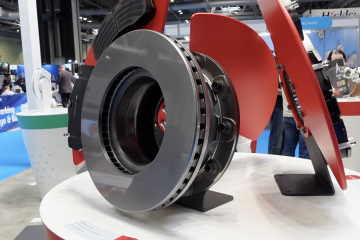Increasing operational costs are at the heart of concerns for most independent garages and franchise dealer workshops, according to a new poll by The Motor Ombudsman, as the cost of living crisis continues to bite.
The study reveals that 79% of workshops surveyed stated that the increase in prices may impact their business. The same amount of respondents also stated that their bottom line had been particularly affected by the significant jump in energy and fuel prices, which continue to climb to record highs.
This led to six in 10 of those polled to suggest they would be looking to increase costs in the coming weeks, allowing them to remain profitable in the face of higher overheads. Another challenge caused by the crisis is the issue of staff salaries. A total of 40% of businesses that took part in the study said they would be raising salaries during the next six months to help team members cope with the hike in the cost of living, with a third (34%) of organisations aiming to plug the staffing gap by taking on new apprentices.
When businesses were asked to comment on the expected outlook for the remainder of 2022, the recurring themes were a trading environment dominated by rising costs, a diminished pool of qualified technicians to recruit from, coupled with increased salary demands, and customers putting off routine repairs due to having less disposable income.
Maintenance delays
Delays getting hold of replacement parts were cited as the second largest obstacle for garages and workshops, negatively impacting around three quarters (72%) of businesses. The poll also showed 71% of workshops highlighting that motorists are reducing their ad hoc spending and routine vehicle maintenance when compared to the first six months of last year.
When these businesses were questioned about what car owners had specifically forgone since the start of 2022 when it came to vehicle maintenance, nine in ten (91%) said that motorists had cut back on taking their car in for its annual service due to the cost of living crisis. This confirms the behaviour highlighted in The Motor Ombudsman’s survey in March, regarding consumer spending on servicing during 2022.
Similarly, over half of businesses (58%) said that demand had dropped for the topping-up of fluids, such as oil and air conditioning coolant, with 55% reporting a fall in bookings for the replacement of wear and tear components, namely tyres, brake discs and wiper blades, when compared to the volume witnessed between January and June 2021.
MOT ‘season’ bites
The COVID-19 pandemic and subsequent lockdowns led to the UK government instigating an MOT extension, which in turn has created an ‘MOT season’, with garages experiencing quieter spring and summer months, while many shifted their annual check to autumn and winter.
This quieter period is seen as a hurdle for 51% of respondents to The Motor Ombudsman’s poll. For 33% of workshops and garages polled, this was compounded by a reduction in vehicle throughput due to ongoing car supply issues.
The automotive industry is going through a supply crisis, as a lack of semiconductors, shipments from suppliers in Russia ending and those from Ukraine delayed due to the ongoing war, cause production of vehicles and parts to slow.
This is a big reason for the decrease in new-vehicle registrations so far in 2022. As these figures drop, the likelihood of cars coming into the aftermarket to plug the MOT season gap diminishes, meaning the quiet period could last longer than hoped. The cost of living crisis also causes problems when it come to new-vehicle purchases.
Skills and staffing improvements
Encouragingly, in a sector where experienced labour is in relatively short supply, only 21% of poll participants stated that they had incurred staff absences due to COVID-19, a marked decrease on the 50% figure recorded in The Motor Ombudsman’s 2021 end-of-year survey.
With a difficulty to take on more staff, and the importance of retaining skilled technicians, nearly half (45%) of garages and workshops explained that they would be training more of their mechanics in the repair and servicing of electric and hybrid vehicles.
In a bid to boost footfall during a challenging period, 33% plan to put in place marketing initiatives to attract new customers, and enhance their online presence.
“Our research has shown that garages and workshops in the service and repair sector have had to manage a multitude of financial and economic challenges so far this year,” commented Bill Fennell, Chief Ombudsman and Managing Director of The Motor Ombudsman.
“With the outlook for the next six months continuing to look difficult, it is unsurprising that service and repair business owners are looking to raise prices to maintain profitability and support staff salaries. This of course all comes during a period when households, which are already under a financial strain, are set to experience even greater pressure from increasing energy costs before year-end, with vehicle maintenance, as shown in our March survey, taking even more of a back seat for many.”
You can view the full results from The Motor Ombudsman’s poll here.



